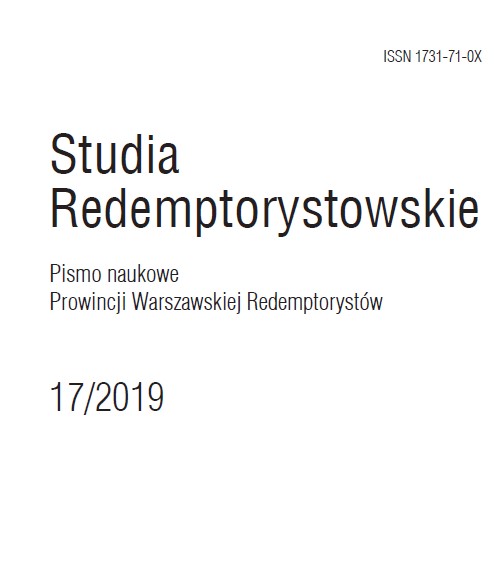Znaczenie modlitwy i kontemplacji w walce duchowej u Ewagriusza Pontyjskiego w ujęciu Anselma Grüna
The meaning of prayer and contemplation in the spiritual fight of Evagrius Ponticus according to Anselm Grün
Author(s): Jerzy BiernatSubject(s): Christian Theology and Religion, Philosophy of Religion
Published by: Warszawska Prowincja Redemptorystów
Keywords: prayer; contemplation; dispassion; asceticism; meditation;
Summary/Abstract: On the path to union with God, Anselm Grün describes the classic forms of prayer that were known to Ewagrius Ponti. The first three forms: lectio, oratio and meditatio depend to a certain extent on human action, while the fourth: contemplatio is exclusively a gift of God. Here ends the concepts, images and thoughts that had the other forms and the immediate experience of God in pure silence begins. God causes a state of silence to burn away internally man from passion, human imaginations of His Being, and above all from pride, to fill him with his grace. Entering into contemplation is for the Ponti a way of healing internal wounds that have arisen in the past. Ascetics practices are not able to renew human life on its own. Only contemplation permits it. The spiritual fight, in which it comes to achieving apatheia, indicates contemplation as an complement. In contemplation a man goes beyond the level of his problems to go to God. He tries to forget about the whole baggage of experiences and emotions and to turn to his interior, to the space where the total silence, in which God lives is the only way to solve problems: instead of an intellectual search for solving problems, turning to conscience and soul to find a living God, who wants to give man a real peace of heart.
Journal: Studia Redemptorystowskie
- Issue Year: 2019
- Issue No: 17
- Page Range: 93-111
- Page Count: 19
- Language: Polish

